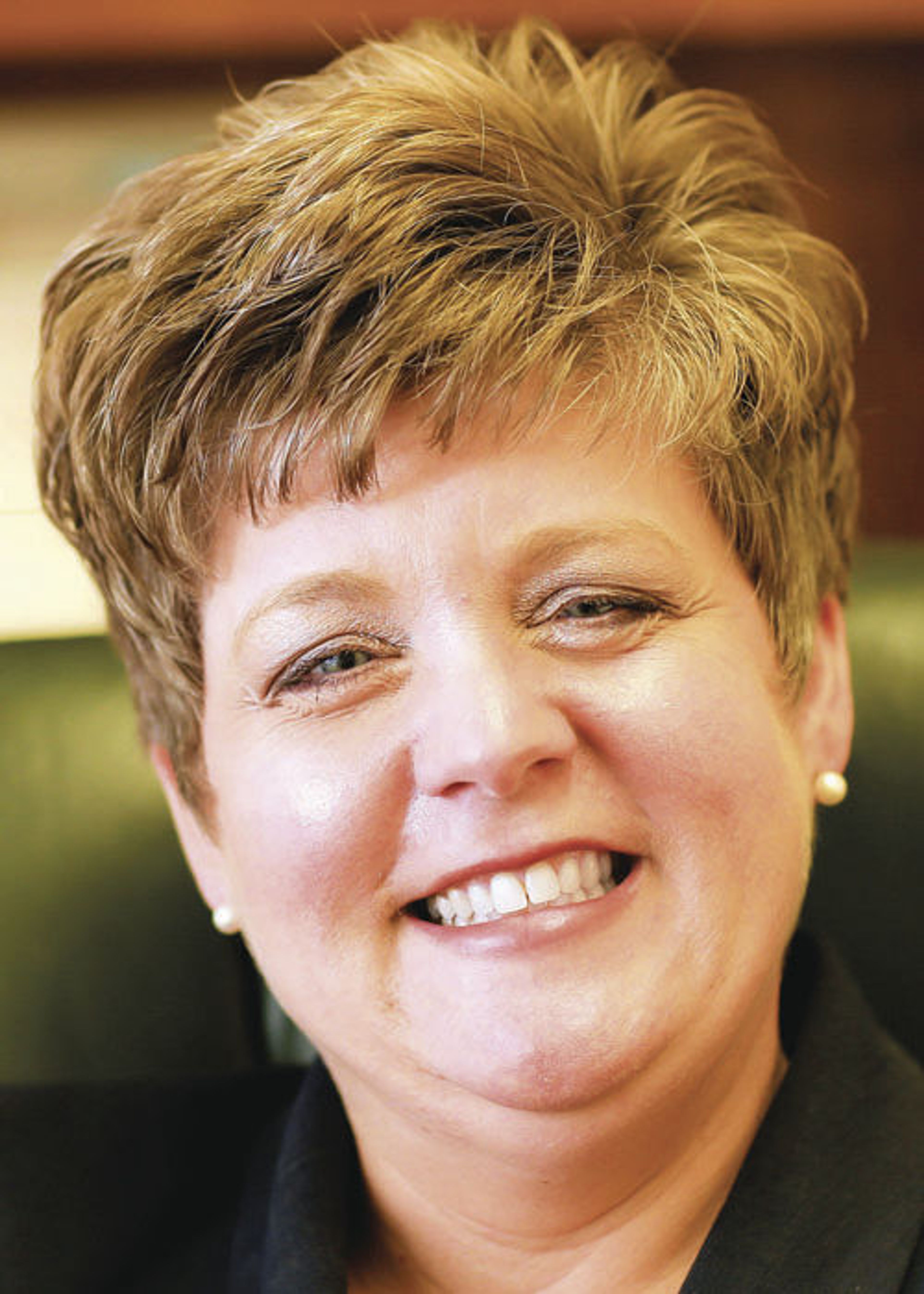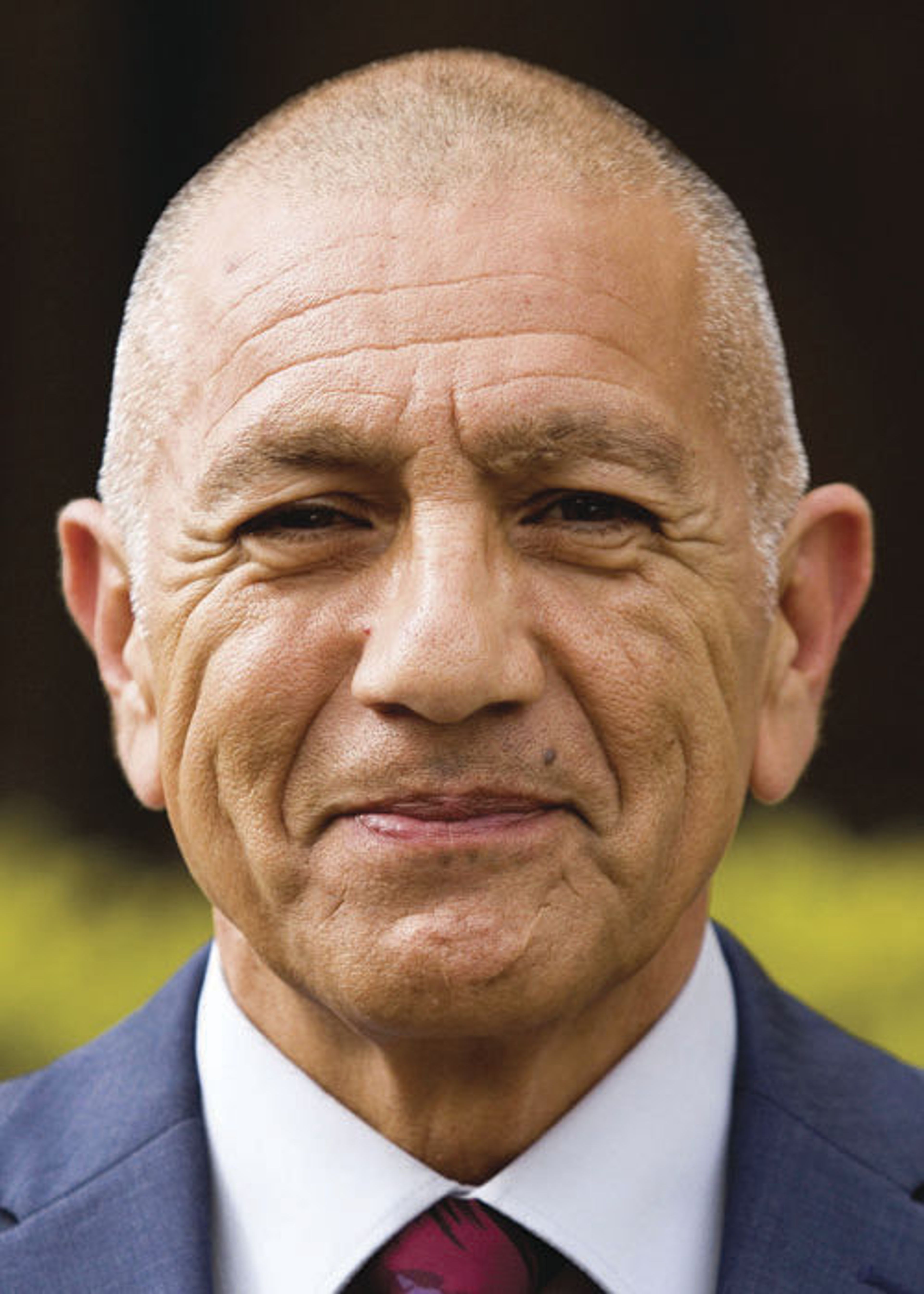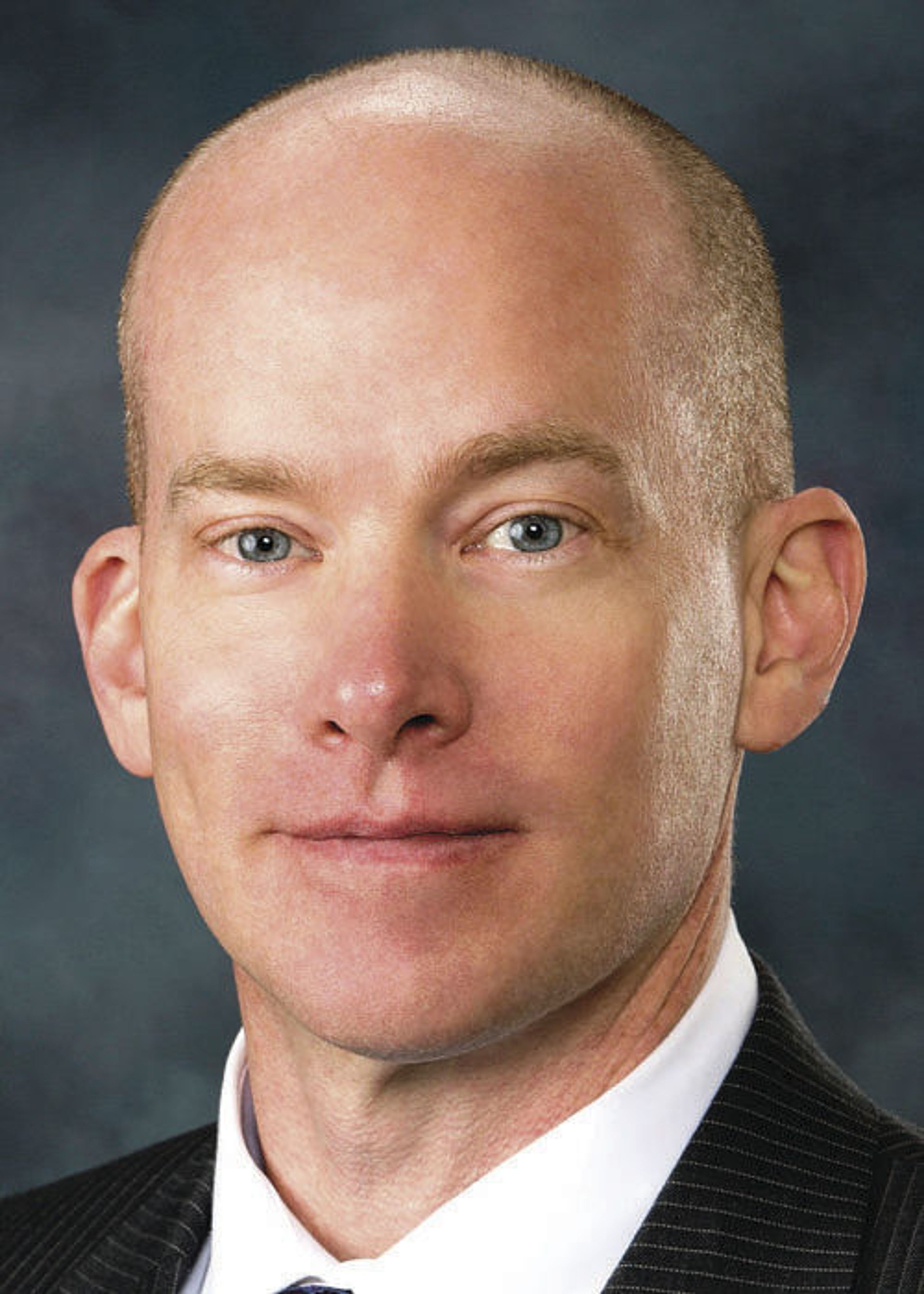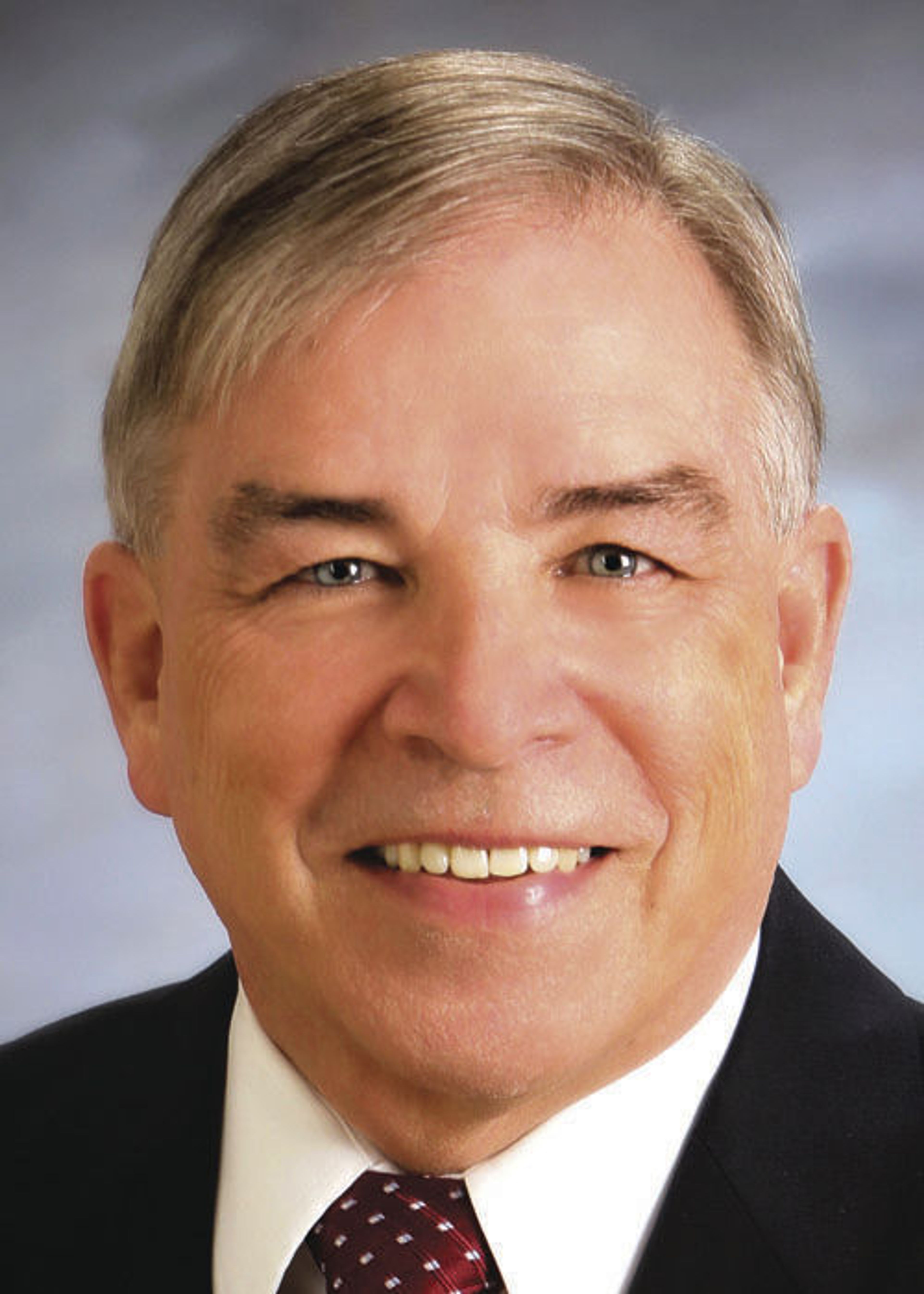Candidates vying for seat on Idaho Supreme Court bench
Hopeful discuss desired qualities of the next justice
ROBYN BRODY
- Age: 46
- Lives in: Rupert
- Occupation: Attorney
- Education: Studied Russian history as an undergraduate and received a master’s in international business and a Juris Doctorate from the University of Denver
- Community involvement: Aides in hands-on training with the Idaho Bar Association at the Idaho Skills Academy
- Family: Married, with two sons
- Website: www.brodyforsupremecourt.com
SERGIO GUTIERREZ
- Age: 62
- Lives in: Boise
- Occupation: Justice, Idaho Court of Appeals
- Education: GED through Job Corps, bachelor’s degree in elementary education, cum laude, from Boise State University and juris doctorate from the University of California
- Community involvement: Founding member of the Idaho Latino Scholarship Foundation, advisory member of the Idaho Leadership Institute and mentor to various community organizations including the Hispanic Youth Symposium
- Family: Four children, one foster son and eight grandchildren
- Website: tinyurl.com/sergio-gutierrez-facebook
CURT MCKENZIE
- Age: 47
- Lives in: Nampa
- Occupation: Lawyer, 14-year state senator
- Education: Northwestern Nazarene University degree in physics and history, Juris Doctorate magna cum laude from Georgetown University
- Community involvement: Active with board of Love Inc. of the Treasure Valley; on advisory boards for Syringa House and Boise State University School of Social Science and Public Affairs
- Family: Single, two children
- Website: www.facebook.com/SenatorCurtisMckenzie
CLIVE STRONG
- Age: 63
- Lives in: Boise
- Occupation: Chief, Natural Resources Division, Idaho Attorney General’s office
- Education: Bachelor’s degree in forest business management from the University of Idaho, juris doctorate from the UI and master’s of law from the University of Michigan Law School
- Community involvement: Board chairman two years for the Idaho chapter of the National Arthritis Foundation; treasurer of the Idaho White Pine Elementary School PTA; president two years of the Timberline High School Booster Club; active with UI Law School Externship Program
- Family: Married, three sons and one grandson
- Website: www.strongjusticeforidaho.com
In the state's only nonpartisan race, four candidates seek an open seat on the Idaho Supreme Court.
Voters will decide in the May 17 primary between Idaho Court of Appeals Judge Sergio Gutierrez; Rupert attorney Robyn Brody; Idaho state Sen. Curt McKenzie, R-Nampa; and Clive Strong, chief of the natural resources division for the Idaho Attorney General's Office.
Regardless of party, everyone can vote in the Supreme Court race. If one of the four candidates receives a majority, that candidate will be elected immediately; if not, the two with the most votes will be on the November general election ballot.
The Idaho State Bar surveyed its members on the candidates' qualifications, based on integrity and independence, knowledge and understanding of the law, judicial temperament and demeanor and legal ability and experience.
In each category, Gutierrez overwhelmingly received more votes of "exceeds expectations" than any other candidate. In the integrity and independence category, Gutierrez received five votes of "does not meet expectations," Brody got seven, Strong got 14 and McKenzie got 123.
Sergio Gutierrez
Gutierrez, 62, has served on the Idaho Court of Appeals for 15 years after six years as a district court judge.
Because of the challenges facing the state's justice system, the integrity of the court is of utmost importance, he said.
Along with 80 to 100 opinions rendered each year, the Supreme Court also administers the state's court systems, he said. He said the effectiveness of the state's system could be improved.
As the state's first Latino judge, he began working on a state court interpreter program in the mid 1980s. This year, the legislature funded it.
He was also on the state's initial group to address issues with the public defender system, as well. Gutierrez said Idaho does not have the proper oversight to assure people are adequately represented.
Gutierrez said as a judge he is deliberate, thoughtful and "I do not allow, to the best of my ability, bias or quick judgment to dictate the outcome." He added, he also believes his servant leadership approach stands out as a candidate.
"My personal life story is just as important as anyone's educational background," he said.
As one of 14 children, he moved with his family to Stockton, Calif., from Mexico as a baby. He dropped out of high school in 9th grade to help support his family. He said a woman in a job service office noticed him continually coming in and recommended he join Job Corps at 16.
"That was a decision that saved my life," he said.
After receiving his GED, he began community college, but dropped out, moving to Washington with his family and ultimately ended up in Boise, finding work as a teacher's aide as he attended Boise State University.
From there, Gutierrez continued through school and law school, up to his appointment on the Court of Appeals.
Robyn Brody
Brody has been practicing law in Rupert for almost 20 years and said she wants someone on the Supreme Court bench who is not only a current practitioner, but also represents rural communities at the state level.
"It is important to have a perspective on the bench that's different from what they have and to have one from a rural community outside of Ada County is valuable," she said.
Brody, 46, said it is important for the Supreme Court bench to understand the realities in rural Idaho courtrooms as it manages the state's court systems. She said these are courts often lacking technology. When procedural or technology improvements are implemented, the bench needs to find ways to make it work in a way the rural communities can handle despite a lack of services or funding.
"It is important to have an attorney who is on the bench who has been practicing somebody who has a perspective of being in front of the court recently," she said. "To make any changes in the court you need to understand all the various perspectives and build a consensus."
Having worked with a diversity of people and cases is important to Brody, as well. Her experience representing farmers, schools, hospitals and businesses, and helping people get marriage licenses and $3.5 million real estate deals sets her apart, she said.
"(Residents) want someone who has that sense of fair play and someone who will protect their rights," she said.
Brody said she believes the system works well most of the time and doesn't believe "someone needs to go or that there is some overriding concern." Still, she wants to assure the next justice has the right temperament and ability to reach a wide range of people.
Clive Strong
Strong believes his experience with the state attorney general's office, especially the support he has received from both sides on the Snake River Water Rights Adjudication case, shows he has the qualities needed to sit on the bench.
"I have extensive experience in constitutional law, in resolving complex legal issues and understanding the government process," he said. "I've had to deal with separation of power and resolving those questions on behalf of the people of Idaho."
Strong, 63, was the state's lead attorney in the Snake River adjudication, leading a steering committee that had to process over 158,000 water rights claims in a timely, efficient and cost-effective manner, he said.
Since announcing his bid for Supreme Court, Strong said he has received support from both sides of the case, which he believes shows he can handle complex cases in an honest, impartial and fair way.
Strong said he has also received endorsements from multiple legislators on both sides of party lines.
Natural resources law doesn't limit his legal practice though, he said, citing experience in bankruptcy, real estate, personal and contracts laws and said he has brought multiple cases in front of the U.S. Supreme Court.
Strong said along with a breadth of experience, having worked with a variety of people across the state should also be expected of the next justice.
"Idaho has a very diverse population. There is a lot of regionalism," he said.
Strong said other candidates haven't worked legal issues from all regions of the state, as he has.
As technology and finances change, Strong said, access to the court will be a growing concern as people expect timely solutions delivered cost-effectively.
Strong said he has the skills to bring people together to find solutions.
"As a justice, I'm going to be guided by the best interest of Idaho, not be held by any corporation or other types of interest," he said.
Curt McKenzie
McKenzie has served as a Republican Idaho state senator for the past 14 years and owns his own law firm in Boise.
"We have this separation of power, and the court reviews the Constitution and statutes, and I see their role as applying them as they are written, without trying to substitute their own policy," he said. "There are justices on the U.S. Supreme Court who feel their role is different than that."
McKenzie, 47, said as a senator he understands and appreciates the separation of power between the branches and will not try to legislate from the bench.
The judicial philosophy of the candidate is important and whether or not they apply the Constitution as written, he said.
McKenzie said it is important for a justice to have not only a strong academic background but also a diverse legal practice. He said he has worked as a deputy prosecutor, in complex civil litigation and now handles private cases at his firm.
"All those experiences are important to be able to understand a variety of cases on the bench," he said.
McKenzie said his time on various committees as a senator will also help as a justice, including the Public Defense Reform Interim Committee, chair of the interim committee on energy and environment and the technology and local government tax committees.
Correspondent Betsy Russell wrote in The Spokesman-Review that in 2011 McKenzie had to repay more than $2,400 to the state for daily mileage reimbursements between the capitol and his home. During the session, he was also collecting $122 a day for a second home in Boise - a couch in his law office, Russell wrote.
McKenzie told Russell he hadn't requested the commuting reimbursement and didn't notice it was directly deposited into his accounts. When it became public, Russell wrote he repaid the costs, but has continued collecting second-home payments as he stays at a basement apartment in his new law office every other week.
Samantha Malott can be reached at (208) 883-4639, or by email to smalott@dnews.com.








